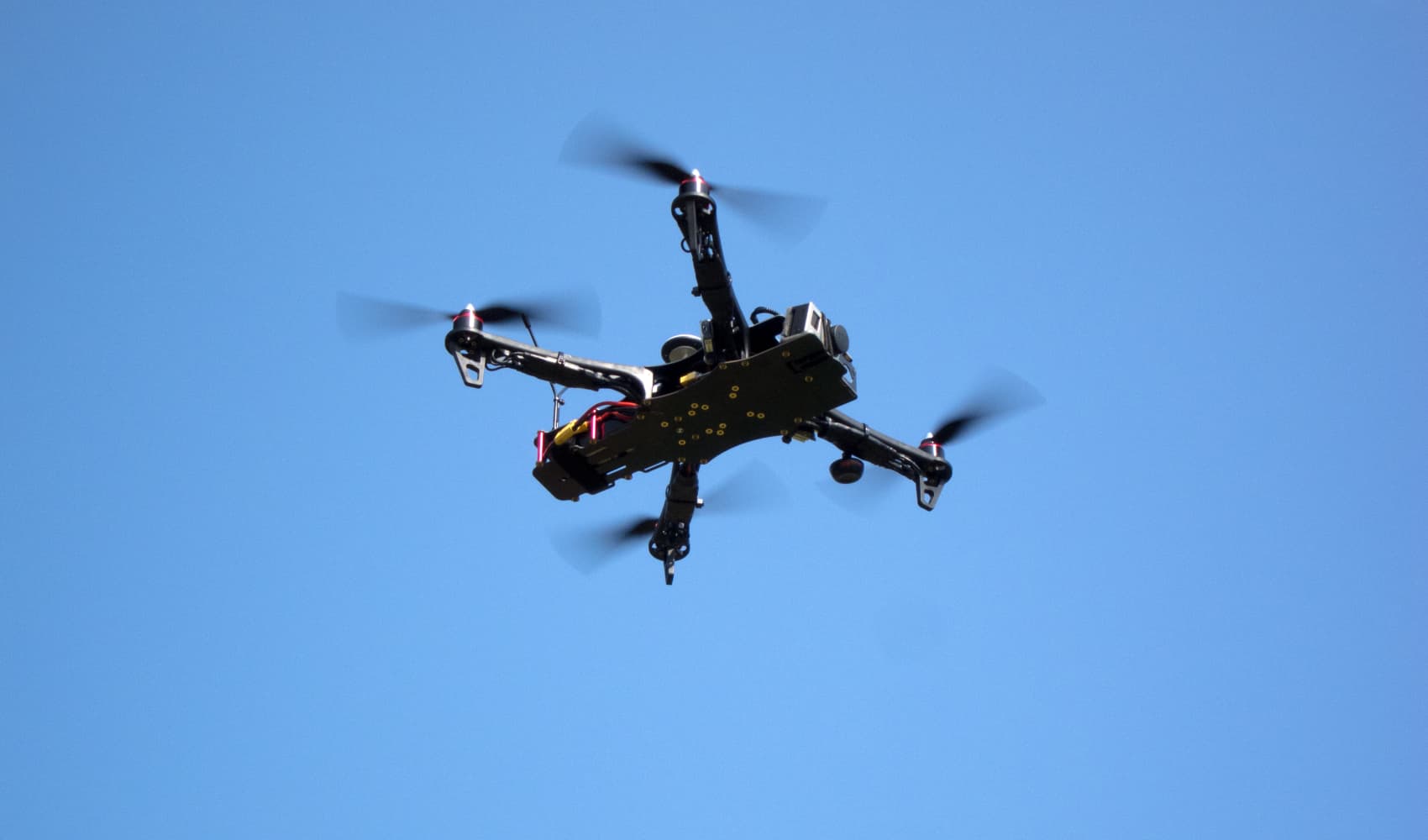
This is CNBC's live blog covering Asia-Pacific markets.
Asia-Pacific markets attempted a rebound on Friday, with Australia stocks bouncing from a one-year low in the previous session as investors continue to digest more inflation data.
Core consumer prices in Tokyo rose 2.7% in October compared to a year ago, government data showed. Economists polled by Reuters expected a 2.5% rise. The core consumer price index for Tokyo includes oil products but excludes fresh food prices.
Australia released its third quarter producer price index on Friday, with the country's PPI recording a 3.8% growth year-on-year and 1.8% climb quarter-on-quarter. The PPI measures the change in the price of goods sold by manufacturers.
Get top local stories in Southern California delivered to you every morning. >Sign up for NBC LA's News Headlines newsletter.
Hong Kong's Hang Seng index climbed 1.96% in the final hour of trading, leading Asian markets. The mainland Chinese CSI 300 index closed 1.37% higher at 3,562.39 and ended the week with gains.
This comes after state media reported that former China premier Li Keqiang had died.
In Australia, the S&P/ASX 200 traded 0.21% higher, ending the day at 6,826.9.
Money Report
Japan's Nikkei 225 rose 1.27% higher, closing at 30,991.69 and the Topix added 1.37%, ending at 2,254.65.
South Korea's Kospi gained 0.16% to 2,302.81, while the small-cap Kosdaq reversed earlier losses and advanced 0.62%, finishing at 748.49.
The Nasdaq Composite fell deeper into correction territory on Thursday as Meta became the latest tech company to offer a forecast that didn't quite live up to investors' expectations.
The tech-heavy index lost 1.76%, closing below its 200-day moving average and ending at 12,595.61. The S&P 500 dipped 1.18%, while the Dow Jones Industrial Average slipped 0.76%.
— CNBC's Brian Evans and Pia Singh contributed to this report
Hong Kong leads gains in Asia, powered by healthcare and real estate stocks
Hong Kong's Hang Seng index led other major benchmarks in Asia to trade higher by 2.54%, largely due to gains in health-care and real estate stocks.
The top gainer on the index was Sino Biopharmaceutical, which rose sharply by more than 11%.
Other top gainers included WuXi Biologics and Hansoh Pharmaceutical, which saw their share prices climb by 8.54% and 10.58% respectively.
— Lim Hui Jie
China's former premier Li Keqiang has died: State media
China's former premier Li Keqiang on Friday has died at the age of 68, according to Chinese state media.
CCTV reported Li died just past midnight after suffering a heart attack while in Shanghai.
Li was premier of the world's second largest economy from 2013 to 2023, and ended two terms as premier in March.
Before this, he was vice premier from 2008 to 2013, and became a member of the highest circle of power, the Chinese Communist Party Central Committee Politburo Standing Committee, in 2007, according to state media.
— Evelyn Cheng
China industrial profits fall in January to September period
China's industrial profits fell in the first nine months from a year earlier, according to data released by the government.
Profits at industrial firms shrank by 9% in the January to September period from a year earlier, following an 11.7% profit year on year fall in profits for the first eight months.
The data highlights the challenges faced by China's economy amid signs of a lackluster post-pandemic recovery.
— Shreyashi Sanyal
Australia third quarter producer prices heat up
Australia's producer prices climbed at a quicker pace during the third quarter, data released by the government on Friday showed.
The country's PPI recorded 1.8% climb quarter-on-quarter, much hotter than the prior quarter's 0.5% increase. Year-on-year it showed 3.8% growth, a tad cooler than a prior reading of 3.9%.
The PPI measures the change in the price of goods sold by manufacturers.
Earlier this week, consumer price inflation in Australia came in stronger than expected at 1.2% for the third quarter, forecasts of 1.1%.
The readings arrive ahead of the Reserve Bank of Australia's monetary policy decision on Nov. 7.
— Shreyashi Sanyal
Tokyo inflation comes in higher than expected ahead of central bank meeting
The headline inflation rate in Japan's capital of Tokyo came in at 3.3% for October, a faster pace of growth compared to the 2.8% seen in September.
Core inflation — which strips out prices of fresh food — stood at 2.7%, slightly higher than the 2.5% expected by economists polled by Reuters.
Tokyo's inflation print is considered a leading indicator of nationwide trends, comes just before the Bank of Japan meets next Monday and Tuesday for its monetary policy meeting.
— Lim Hui Jie
CNBC Pro: Worried about a slowdown? AllianceBernstein shares a way to hedge — and names 10 global stocks
High-yielding stocks have been doing well despite rising interest rates, according to asset management firm AllianceBernstein.
"We regard high equity yield as a more defensive and higher quality flavor of value which can act as a useful hedge against slowing growth or potentially a mild recession," the firm's analysts wrote in a recent note.
AllianceBernstein performed a screen of "High Combined Yield Stocks" in Europe for the final quarter of the year. Some that showed up were given "outperform" ratings.
CNBC Pro subscribers can read more about them here.
— Amala Balakrishner
CNBC Pro: 'An iPhone moment': Bernstein names global stocks to play the 'rapid growth' in battery tech
The energy transition will require more and better batteries, according to Bernstein.
A 25-fold increase in sales of batteries will be needed from 2022 — for the energy transition both in electric vehicles and energy storage, they said.
One type of battery technology will likely be an "iPhone moment" for the industry, the firm said, giving one of the stocks it named about 100% potential upside.
CNBC Pro subscribers can read more here.
— Weizhen Tan
U.S. economy grows more than expected in third quarter
U.S. GDP expanded by 4.9% annualized in the third quarter, beating a Dow Jones forecast for 4.7% growth. That expansion rate is also up from the 2.1% seen in the second quarter. This is the latest sign of economic resiliency despite the Federal Reserve's moves to tighten monetary policy to tame inflation.
— Fred Imbert, Jeff Cox
Retail traders step up single stock selling following weeks of buying, JPMorgan says
Retail traders stepped up selling of single stocks across the broader market but remained partial toward lowering positions in utilities, real estate and financials, according to JPMorgan. The firm noted retail traders net sold roughly $365 million worth of equities over the past week.
However, analyst Peng Cheng wrote on Wednesday that retail traders showed particular interest in chip stocks AMD and Nvidia, which saw $369 million and $252 million worth of stock purchases over the past week, respectively.
— Brian Evans
S&P 500 is in a correction on an intraday basis
The S&P 500 is hitting its lows of the session and is now in a correction on an intraday basis. The benchmark's decline from its 52-week intraday high in July is now 10.1%.
The S&P 500 is off by 9.7% from its 2023 high closing price on July 31, so not quite an official correction just yet.
The Nasdaq Composite is already in correction territory, entering on Wednesday.
—John Melloy
The major averages are on pace for three straight losing months
Stocks are limping through the fall, and all three of the major averages are poised to post their third consecutive month of declines.
In October, the S&P 500 is down 3.52%. The Nasdaq Composite is off 4.72%, and the Dow Jones Industrial Average is down 2.16%.

If the month ends with losses for the indexes, it'll be the first time the Dow and the S&P 500 have had three straight months of declines since March 2020.
The last time the Nasdaq fell for three consecutive months was back in June 2022.
-Darla Mercado, Chris Hayes






